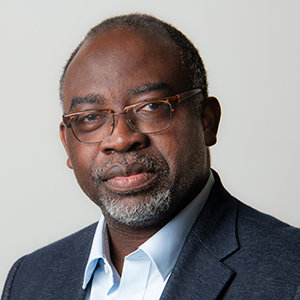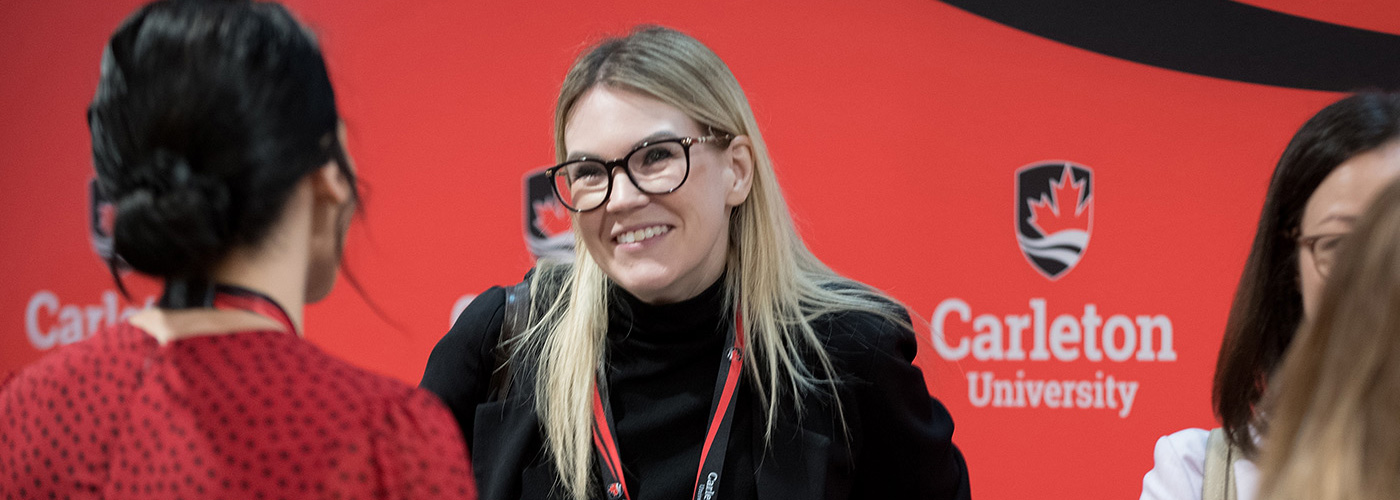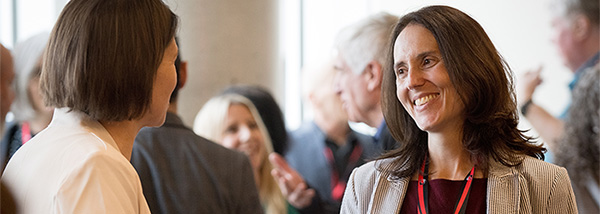7:30 – 8:30 a.m. – Registration / Breakfast
8:30 – 8:40 a.m. – Welcome and Opening Remarks
 Allan Thompson Allan ThompsonDirector, School of Journalism and Communication, Carleton University |
 Wisdom Tettey Wisdom TetteyPresident and Vice-Chancellor, Carleton University |
8:40 – 9:00 a.m. – Opening Keynote Address
 Adegboyega Ojo Adegboyega OjoCanada Research Chair (Governance and AI), Carleton University |
Moving Beyond the Canadian AI Paradox
This talk explores an emerging paradox: Canada is a global leader in AI research, talent and convening power, especially in areas like technology diplomacy. Yet, it continues to face challenges in building a dynamic AI ecosystem with thriving startups, applying AI effectively to pressing national issues like declining productivity, and tapping into its full potential in sectors such as healthcare and agriculture. In an increasingly complex and uncertain global environment, what will it take for Canada to move beyond this paradox and turn its AI leadership into broader societal and economic gains.
9:00 – 10:10 a.m. – Panel 1: AI Value – Catching the Wave of a Digital Tsunami
 Sonya Shorey Sonya ShoreyPresident and CEO, Invest Ottawa |
 Danielle Manley Danielle ManleyDirector, School of Nursing, Carleton University |
 Majid Komeili Majid KomeiliDirector, Intelligent Machines Lab (iML), Carleton University |
 Julien Kathiresan Julien KathiresanDirector of Finance, Mistral Venture Partners |
AI is increasingly being leveraged as a tool for value creation across all sectors. Its applications are broad, ranging from enhancing operational efficiencies to transforming entire industries and public services, as well as enabling entirely new business models.
As AI continues to evolve, its potential for value creation will expand, creating new opportunities and challenges for business, the economy and society. Join the panel as they discuss how AI is, can and will create value, improve efficiencies at scale and help solve complex problems for all types of organizations.
10:10 – 10:35 a.m. – Networking Break

10:35 a.m. – 11:45 a.m. – Panel 2: AI Impact – Ethics, Policy, Governance and Risk
 Jordan Zed Jordan ZedAssistant Secretary (AI), Artificial Intelligence Secretariat, Privy Council Office of Canada |
 Kate Purchase Kate PurchaseSenior Director for International AI Governance, Microsoft |
 Kathleen Fraser Kathleen FraserResearch Officer, National Research Council of Canada |
 Mary Kelly Mary KellyProfessor, Cognitive Science, Carleton University |
AI has quickly evolved from a niche area of research to a powerful force transforming our world in new and unexpected ways. This rapid integration is raising important questions about ethics, risk, bias, fairness and regulation.
As AI continues to advance, it will be crucial for policymakers, businesses and society to navigate these changes thoughtfully — ensuring its benefits are developed responsibly, shared equitably and managed carefully to mitigate potential downsides. Join the panel as they explore issues such as AI ethics, policy, bias, governance and risk.
11:45 – 12:15 p.m. – Closing Keynote Address
 Elena Fersman Elena FersmanVice President and Head of Global AI Accelerator, Ericsson |
AI and Telecom: Evolving Architectures and Operational Integration
This presentation outlines the ongoing integration of artificial intelligence into telecommunications networks, focusing on the architectural and operational implications of this convergence. It addresses recent developments in generative AI, agent-based systems, and distributed intelligence, and how these are being incorporated across telecom functions, from radio access and transport to orchestration and service management. The session highlights key trends shaping AI infrastructure and traffic patterns, the role of telecom-specific models, and the application of domain-adapted LLMs.
12:20 – 1:30 p.m. – Lunch with Concluding Remarks at 1:00 p.m.
2:00 p.m. – End of Conference

Please be aware that due to unforeseen circumstances, the schedule and speakers may be subject to change.